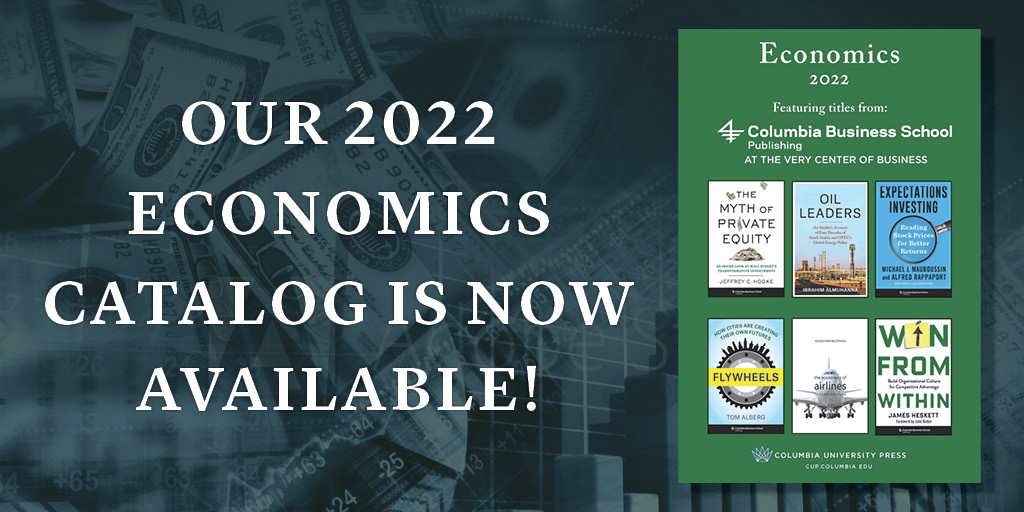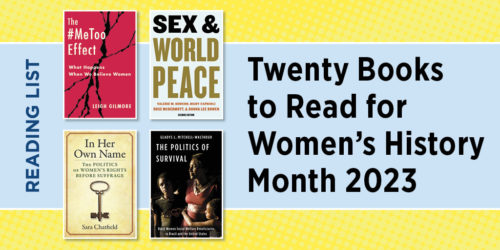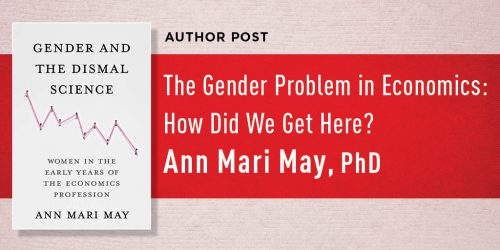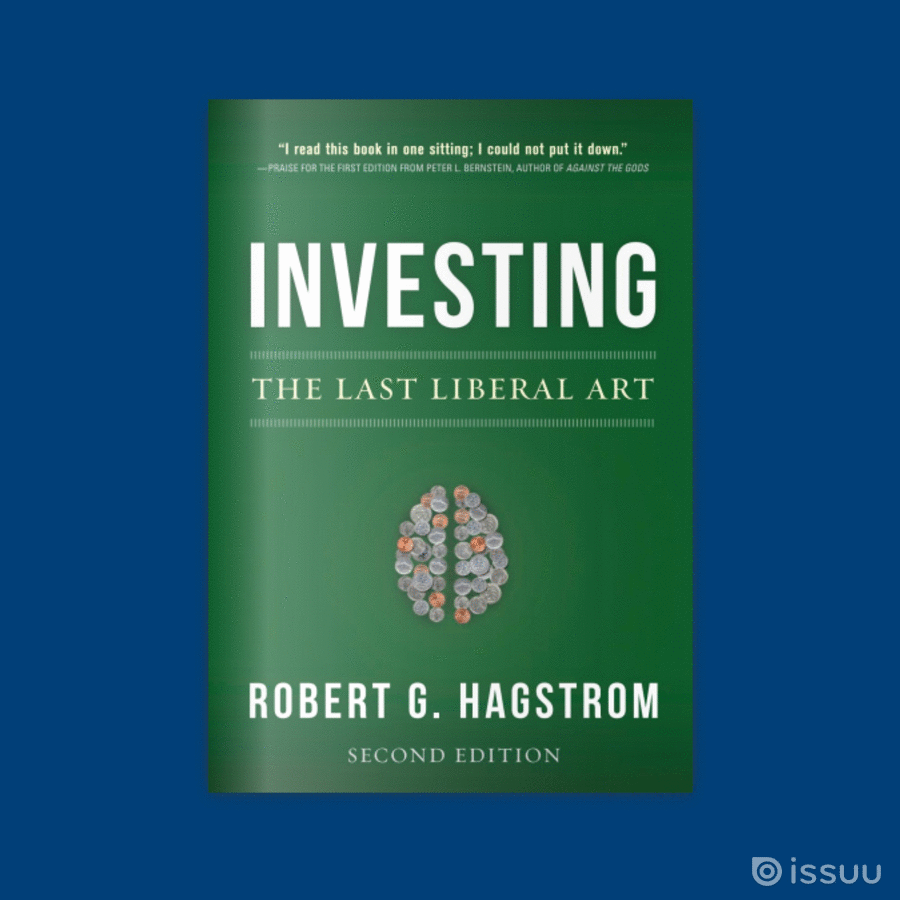Announcing the 2022 Columbia University Press Economics Catalog
Featuring Titles from Columbia Business School Publishing

Click on the down arrow above to download the PDF.
Letter from the Editor of Columbia Business School Publishing:
As the founding publisher of the Columbia Business School Publishing imprint, I am honored to present our recent and forthcoming authors and titles. We seek to bridge leading academic thought and professional practice to move the fields forward in finance, investment, digital business, innovation, and social enterprise. We face increasing economic inequality and business uncertainty, and we hope to solve society’s problems.
In Flywheels: How Cities Are Creating Their Own Futures, Tom Alberg demonstrates the need for innovative thinking that encourages livability alongside economic growth. Flywheels is timely reading for everyone from mayors to business leaders to engaged citizens.
“Alberg shows not only how it was done but also how high-tech capitals-and cities everywhere-can do it even better through strong leadership, long-term thinking, and a commitment to livability for all. Essential reading for navigating times of extraordinary change and tech-driven disruption.”-MARGARET O’MARA
In Expectations Investing, Revised and Updated, Michael Mauboussin and Al Rappaport update their textand premise – that investors start with the stock price and what it implies for future financial results, then assess the likelihood of revisions to these expectations -for the market of today.
“Al and Michael are writing a book for the times that we are in, with much more attention paid to disruption, and the value it creates and destroys, and user/subscriber platforms, which can be exploited for gain and thus provide optionality.”-ASWATH DAMODARAN
Getting Price Right: The Behavioral Economics of Profitable Pricing lays out Gerald Smith’s framework for managerial price-setting, combining behavioral economics with the hard analytical elements of pricing strategy.
“An insightful and engaging integration of behavioral theory and pricing practice.” -THOMAS NAGLE
Jeffrey C. Hooke’s The Myth of Private Equity: An Inside Look at Wall Street’s Transformative Investments is a detailed exposé of the flaws in private equity investment strategies and those who enable them, providinginsight into the financial sector sometimes seen as a poster child for the harms of unfettered capitalism.
“Jeffrey C. Hooke’s book uses accessible language and compelling data to break down the myth of private equity performance and should be required reading for all public pension fiduciaries.” -RANDI WEINGARTEN
We believe these Columbia University Press books, among others, will educate, entertain, and enlighten you.
Sincerely,
Myles C. Thompson,
Publisher, Columbia Business School Publishing
Director of publications, Heilbrunn Center for Graham and Dodd Investing
Letter from the Editor for Economics:
While 2020 was a year of emergency and thinking about the present, 2021 and now 2022 are years of looking forward toward recovery, improving working lives, and grappling with the challenges that have always faced the field but were highlighted and exacerbated in the last twenty months.
And so, I’m pleased to present Columbia University Press’s recent and forthcoming titles in economics. Climate change has only become a more pressing issue. Joshua Fisher’s Managing Environmental Conflict explains in a clear and concise manner how we might respond to environmental disputes and implement effective change where ostensibly conflicting priorities engage with one another. This book will be invaluable for academics, policy makers, scientists, and those engaged in preserving our planet.
Oil is an unusual commodity in that individual decisions can have an outsized effect on the market. In Ibrahim Al Muhanna’s Oil Leaders, we get an unprecedented glimpse into the strategic thinking of top figures in the energy world from the 1980s through the recent past. Drawing on personal familiarity as a close adviser to four Saudi oil ministers, he reveals a behind-the-scenes perspective on pivotal oil market events and dynamics.
Finally, Ann Mari May examines the historic inequality that women have faced in the profession from the early days of the American Economic Association. In Gender and the Dismal Science, she examines the structural and institutional factors that have excluded women in the economics field, from graduate education to academic publishing to university hiring practices. Revealing the historical roots of the homogeneity of economics, May sheds new light on why biases against women persist today.
Be sure to check out the rest of the catalog for our outstanding books in the field.
Christian Winting, Editor for Economics
Categories:American Economic AssociationBusinessCatalogsColumbia Business School PublishingEconomics
Tags:Alfred RappaportAnn Mari MayExpectations InvestingFlywheelsGender and the Dismal ScienceGerald SmithGetting Price RightIbrahim AlMuhannaJeffrey C. HookeJoshua D. FisherManaging Environmental ConflictMichael J. MauboussinOil LeadersThe Myth of Private EquityTom Alberg















